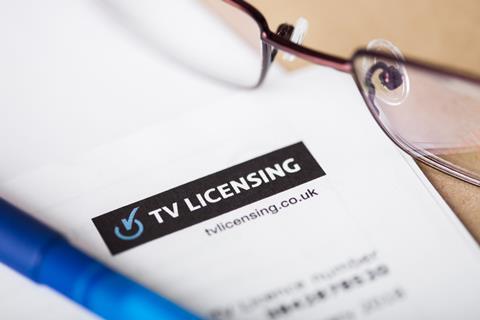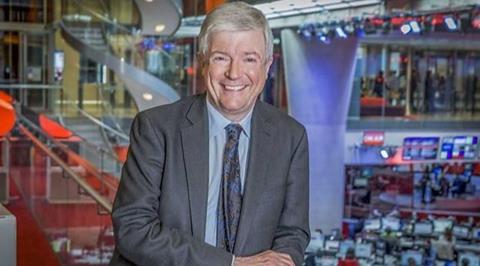- BBC scraps free TV licences for over 75-year-olds
- 1.5 million households eligible under the new rules
- BBC director general says “fairest” outcome for all

Almost four million UK pensioners will have to pay for a TV licence as of June next year after the government-funded scheme was confirmed to end today.
The BBC has confirmed its free TV license fees for those over 75 who receive Pension Credits will be abolished from June 2020 when a means test will come into effect.
According to the ITV report, around 3.7 million households which previously received a free licence will now have to pay for the service.
In an announcement BBC director general Tony Hall said the news was “not an easy decision.”
The threat of scrapping the free licence has been criticised by campaigners who pointed to the importance of the free service for the elderly.
Hall announced that licence fees will now be linked to Pension Credit and will be means-tested.
Some 1.5 million households are forecasted to be eligible for a free licence under the new scheme which is estimated to cost the BBC around £250 million over 2021 to 2022, depending on take-up.
The BBC was reviewing the licencing fees throughout 2018 with the threat of digital giants taking away audience eyeballs and challenging the broadcaster in an evolving digital ecosystem.
Hall’s plea for funding and support
Last year Hall called for increased funding toward the BBC during a keynote speech he gave during a Royal Television Society event in London last October.
He explained the only way for the BBC to thrive and retain its role within a democratic society amid the intensifying technological and digital competition was to receive financial and political support.
He said: “Cracks are starting to show,” in the broadcasters ability to stand up to the competition from global media giants.
He complained about a lopsided regulatory playing field and the prominence, competition rules, advertising, taxation, trade and production quotes had varying degrees of relevance between UK-based companies and the new digital entrants.
He said: “All this comes at a time when the BBC is also faced with taking on the full cost of free TV licences for those aged 75 and over. This has potential implications both for the BBC’s funding and for licence holders.
“The concession, as it is currently formulated, comes to an end in 2020. The BBC Board will have to consult on possible options and then decide. It could be the same, it could be different. There are a variety of options.”

Hall said: “Whilst we know that pensioner incomes have improved since 2000, we also know that for some the TV licence is a lot of money.
“I believe we have reached the fairest judgment after weighing up all the different arguments.
“It would not be right simply to abolish all free licences. Equally, it would not be right to maintain it in perpetuity given the very profound impact that would have on many BBC services.”
Hall made clear the decision was informed and driven by the government not the BBC and has been established in an attempt to ream “fairest for all audiences, of all generations, old and young.”
The BBC was due to take over the cost of free TV licences as part of its new charter agreement which commenced in 2017, however was estimated to cost the BBC around £725 million.
The transition from government payment to the broadcaster has been phased in and will solely lie with the BBC as of next year.
Chairman of the BBC Sir David Clementi said: “It is the fairest and best outcome. It is one we can implement and endorse. This is an outcome that is the fairest possible in difficult circumstances.”





















No comments yet